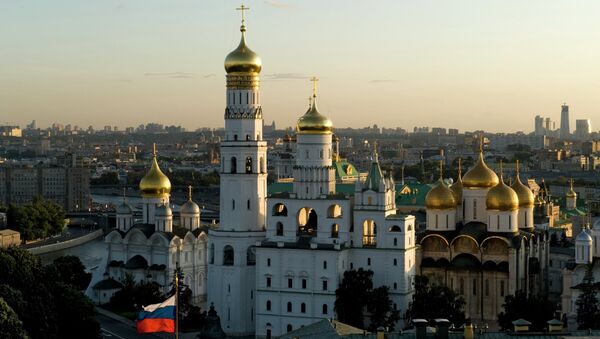The first myth, highlighted by the author, states that "immigrants don't go to Russia and Russians can't wait to leave." However, this misconception falls apart under careful scrutiny: currently Russia is considered second only to the US in immigration, the author stressed.
"Further challenging the typical western narrative that Russia is the armpit of the world and no one in their right mind could possibly want to live there, it should also be noted that a recent poll conducted by the Levada Center found only 10% of Russians thought they might enjoy living abroad while only 5% regularly thought about leaving," Natylie Baldwin emphasized.
The second most common myth, according to the author, is that Russia is teetering on the brink of collapse. Although Russia is indeed facing financial hardships it, nevertheless, saw impressive agricultural and industrial growth in 2014, while its unemployment rates remained under 6 percent, Natylie Baldwin pointed out.
Meanwhile Russia has launched a series of ambitious infrastructural initiatives, including the Kerch Strait Bridge project which is aimed to connect the Crimean peninsula with the mainland, as well as a number of architectural projects in St. Petersburg, Tomsk and Moscow, to name but a few.
"Furthermore, China plans to invest $5 billion (RI, RBTH, China Banks to Finance New Russian Hi-Speed Railway) in the construction of a new high-speed rail system from Moscow to Kazan as part of the New Silk Road project of economic development and trade throughout Eurasia, a project that Russia will figure prominently in."
This idea is rather ludicrous, since Russia has a rich history and culture "that is four times older than that of the United States."
The roots of Russian statehood lie deep in medieval times. The country was largely influenced by the Byzantine culture after Prince Vladimir adopted Orthodox Christianity in the 10th century and declared it the official religion of the Russian state. Peter the Great strengthened Russia's connections with the West and initiated bold reforms in the 18th century. In the 20th century the Soviet Union broke the Nazi war machine.
Natylie Baldwin emphasized that currently Russia is "undergoing a gradual process of creating a post-Soviet national and cultural identity."
"Russia will also likely borrow some elements from the West, but they will never be a carbon copy of the United States which has a far different geographical, historical and cultural background," the author concluded.






